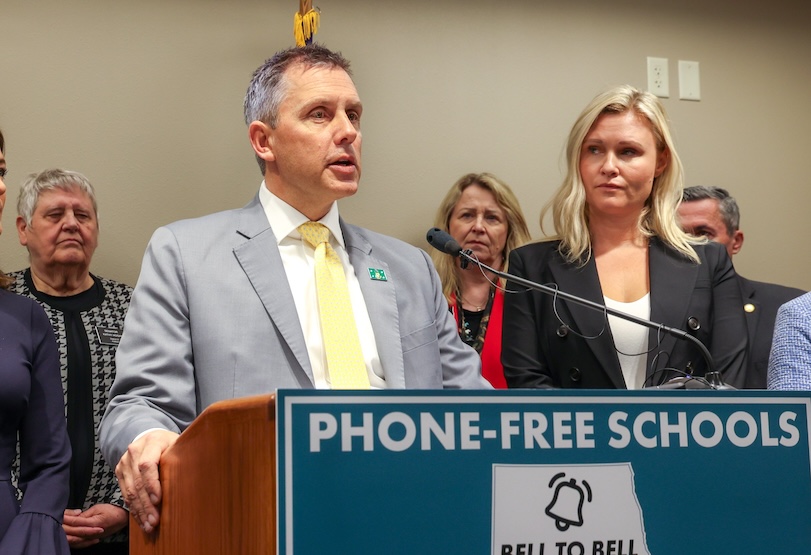North Dakota – Governor Kelly Armstrong, First Lady Kjersti Armstrong, and Lt. Gov. Michelle Strinden joined state legislators, education officials, and student representatives in unveiling support for new legislation aimed at improving student learning and well-being.
The proposed legislation would require public schools to implement policies that secure students’ cell phones during the school day, ensuring that they are turned off, locked away, and inaccessible from the start of the school day until dismissal.
Gov. Armstrong emphasized the importance of reducing distractions caused by personal devices. “We want to give something back to students: the freedom to learn and grow in school without the distraction of their personal electronic devices and social media,” he said.
“Adopting bell-to-bell phone-free school policies will improve academic performance, mental health, and well-being and give our students the best chance to reach their full potential, while also allowing teachers to focus more time on instruction instead of distraction.”
Amendments introduced today to Senate Bill 2354 and House Bill 1160 would require all personal electronic communication devices to be securely stored during school hours. The legislation would allow schools flexibility in how they store these devices, such as using secure lockable pouches or phone lockers, with $1.5 million in funding proposed to help cover equipment costs.
Lt. Gov. Strinden, who spoke in favor of the proposal before the House and Senate education committees, noted that inconsistent phone policies across schools and classrooms had caused confusion and frustration.
“We’ve seen how inconsistent phone policies from school to school and classroom to classroom can create confusion and frustration for students, parents, and teachers alike,” she said.
]”Establishing a baseline with a bell-to-bell phone-free policy will ensure students in every public school have the same opportunity to learn without the distraction of cell phones and social media while in school.”
While the legislation seeks to reduce distractions, it also ensures that students who need electronic devices for medical reasons or as part of an individual education plan (IEP) will still have access. Additionally, the use of tablets and other school-issued devices for learning purposes will still be allowed.
Supporting the proposal, social psychologist Jonathan Haidt, author of “The Anxious Generation” and advisor to the Phone-Free Schools Movement, submitted testimony highlighting research that shows phone-free schools can reduce distractions and improve student focus.
The new legislation is seen as a key step in creating a more focused and supportive learning environment, free from the constant distraction of personal electronic devices. If passed, it would impact public schools statewide, allowing students to concentrate more on their studies and less on their phones.


